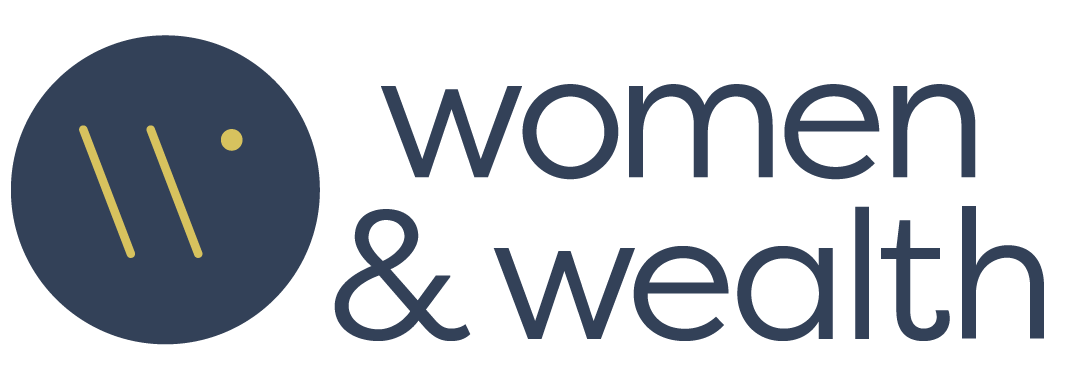Ready, Set, Reset!

When I announced I was leaving PayPal near the end of 2021, friends and colleagues reached out to ask what would be next. I was already working in a dream position on the Social Innovation team, leading efforts to support women’s economic empowerment, and they were surprised to hear I was making a change. Over the summer, I realized that while PayPal was a terrific professional experience with a global scope, I missed the direct impact, pace of decisions, and customer connection that I had experienced working at smaller startups. I also knew I needed a mission-driven company that aligned with my desires to support the financial health of women and enable more equitable financial outcomes regardless of demographic characteristics. Having spent two decades working on consumer financial products, I have a concrete personal goal to increase the number of women in the United States who have access to decent work for livable wages, own an emergency savings account with $2,000 set aside to cover unexpected expenses, and have a retirement account with regular deposits earning compounding interest for future wealth. In 2022, I have a modest plan to work with 50 women to achieve this milestone. Looking forward we hope the team grows, positively impacting thousands of women.

Plans for 2022
These goals are why I am thrilled to announce that I have accepted the role of CEO for Reset Your Nest, a household management platform. Reset Your Nest currently offers premium home organization and has plans to extend into additional household management services. Launched in January of 2020, Reset Your Nest has thrived—despite the challenges and uncertainty of COVID-19. When people were living and working from their homes, the need for more organized spaces became paramount. It has been heartening to hear so many men and women recognize that they have unrealistic expectations for themselves and their partners to somehow magically keep an organized and efficient home when they are already clocking full-time work hours. When the double-shift of caretaking sets in, it is enough work to care for and feed the people living in the home, especially if the household includes small children or elderly parents. Cleaning out closets and tidying up the kitchen takes time and constitutes real work. Historically we’ve looked for women to do this in their “free time” for fun on a Saturday morning, or, more sobering still, by a minimally compensated and untrained care worker. Reset Your Nest is changing cultural expectations and recognizing that household management is real work. We are training home management professionals to support busy homes in exchange for fair wages and benefits.
Writing to connect
As I start in this new role, I am launching a Substack newsletter focused on women and wealth as a way to invite more friends and colleagues to be a part of my experience and join me in this quest to build a more financially equitable system in America. I plan to share what my team and I are learning as we create a company with a mission to close financial gaps for women working in the care economy.

In the United States, financial outcomes are worse for women than men.
Breaking down the inequalities by race, financial outcomes are on average much worse for single Black and Hispanic women than for other segments of our population. Women make less per hour, are often responsible for childcare, and spend more while facing limitations on their available work hours. They often have debt and are significantly less likely to have emergency savings or a retirement account.
Today, due to compounding barriers, women are not prepared for retirement at the same rates as their male counterparts. In addition to making roughly 82 cents on the dollar compared to male colleagues for the same work completed, women are penalized for taking a break in employment during child-rearing years. They face an additional penalty if opting to work part-time—which is often necessary while caring for young children or for aging parents—rather than engaging in full-time employment. While caretaking is no doubt good for society, it is not financially prudent for each individual woman. By the time women reach retirement age, they often have much less set aside in formal savings. Women live longer than men, so the limited retirement savings they have must last, on average, a decade longer than most retirement models predict.
To create opportunities for more equitable outcomes for women, the care economy is a logical place to start.
While exploring the financial challenges of these intersectionalities, I realized how many women working in the care economy have been systematically discouraged from obtaining higher-paying jobs with benefits like sick leave and retirement plans. Caretakers make our homes and communities work, yet as a society, those who offer care are often taken for granted. Livable wages, benefits like healthcare and paid leave, and retirement plans are not commonly offered by individual household employers.
Shortcomings in pay and benefits for care workers are part of a broader problem that transcends job titles. When we allow our culture to devalue care and pay the lowest possible rate for care services, it shortchanges all parties in this equation. Negative outcomes for the worker are often talked about, most recently in Maid by Stephanie Land (released as a dramatic story in the new Netflix series). Maid is a sobering recounting of one woman’s experience as a housekeeper to support her family and make ends meet. However, I believe that by systemically undervaluing care, household employers also suffer.
Busy executive women and affluent families with limited time find they are responsible for caretaking activities that were traditionally managed by a household member devoting full-time hours to the care of home management, such as laundry, meal preparation, and childcare. (Not to mention the dreaded and time-consuming task of driving kids to their extracurricular activities.) Affluent homes across the nation struggle with double shifts and lack services that make it easy to hire great caretakers. Local and national policies for employing care workers make it burdensome to set up and manage payroll and tax contributions, costly to offer benefits that would be standard in larger corporations, and rare for individual households to offer sick leave or retirement plans. Household care professions lack professionalism, job security, and benefits that other careers offer, making it challenging to find and keep excellent in-home care professionals. Said differently, hiring and retaining great home care support is not just a factor of pay, but also a social construct of how we value the services provided.
There is often an unstated cultural expectation that women enjoy sacrificing to provide care for homes and families. This belief impedes our development of the policies and systems that could ease the burden of caretaking for everyone in the network. When we underpay and undervalue this work, both sides of the care economy network lose.

This is why we need a Reset
In 2021, while I was steeping myself in research and policy briefs about the care economy, my lifelong friend Jen Martin shared her experience founding a profitable company and realizing her own financial security in the process. She shared a vision of making this financial security possible for more women across the United States. Equally illuminating for me was the recognition that Jen had created a premium service, one that could potentially reset the value of care work. We were both excited by our common mission.
Together, Jen and I are beginning our reset for the care economy. To tackle the financial challenges of today while preparing our workforce for a comfortable retirement in the future, we pay home organizers livable wages so they can cover the immediate costs to make ends meet and afford to put money aside for emergencies or long-term savings. We are a small company with a huge dream: to create and fund retirement accounts that will be valued at $1 million each, at the time of retirement, for at least 1,000 women in the next five years.
We don’t know it all, but we are on a mission to learn it all. We hope our community (you!) will join us and help along the way.
An easy way to support us is by subscribing to the newsletter. I will share reports, research, and ideas that we are exploring to close financial wealth gaps. Keep watching for when we will launch in your area, and follow our Instagram account to see some of our amazing home transformations. We will also be hiring in 2022 and are on the lookout for great talent who share our passion and want to join a founding team. Software engineers, product managers, designers, marketers, and HR experts—I’m looking at you! If you want to have a meaningful impact and build to scale, please message me.
Please subscribe and write back if you have resources, ideas, or suggestions for how my team and I can meaningfully change financial outcomes for women. Together, let's change the value of care in America and rewrite the social norms to improve the financial health of our care economy workers.
It’s a new year and there’s never been a better time to reset!
Tori Horton
